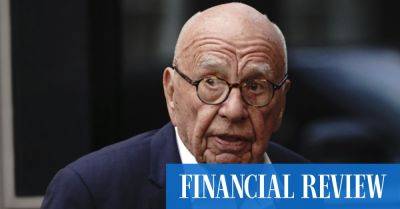Rupert Murdoch's exit ends chapter for polarising figure in his native Australia
By Byron Kaye
SYDNEY (Reuters) — For some Australians, Rupert Murdoch's exit from the leadership of his media empire was a time to reflect on the country's greatest business success story.
For others, it was a welcome reduction of influence for a man they viewed as a danger to democracy, and indeed, the planet.
But as the country that produced the most powerful modern media figure processed the news he was stepping down as chairman of Fox Corp and News Corp (NASDAQ:NWSA), a consensus view quickly formed that there would never be another like him.
«For one bloke to lead the world's most powerful family, build a A$30 billion ($19 billion) family fortune, and influence global affairs for decades is extraordinary,» said Stephen Mayne, a former News journalist turned shareholder activist who has grilled Murdoch about the company's dealings at 15 annual meetings since 1999.
«Sadly, certainly in recent years, so much of that legacy has been toxic,» added Mayne, citing Murdoch outlets' amplification of 2020 U.S. presidential election falsehoods and questioning of climate science, among other things.
The populist conservative media empire which Murdoch built over seven decades from a single Adelaide newspaper spreads across three continents but its influence remains unrivalled in Australia, where some 60% of daily newspapers, including national broadsheet The Australian, are News Corp-owned.
Even at a time when media consumption is splintering from traditional routes, particularly among younger people, Murdoch's influence is embedded in the country's information ecosystem because of its massive reach, media experts said.
His local properties include Sky News Australia, a cable TV channel fashioned on the partisan style of U.S.
Read more on investing.com



 investing.com
investing.com




















